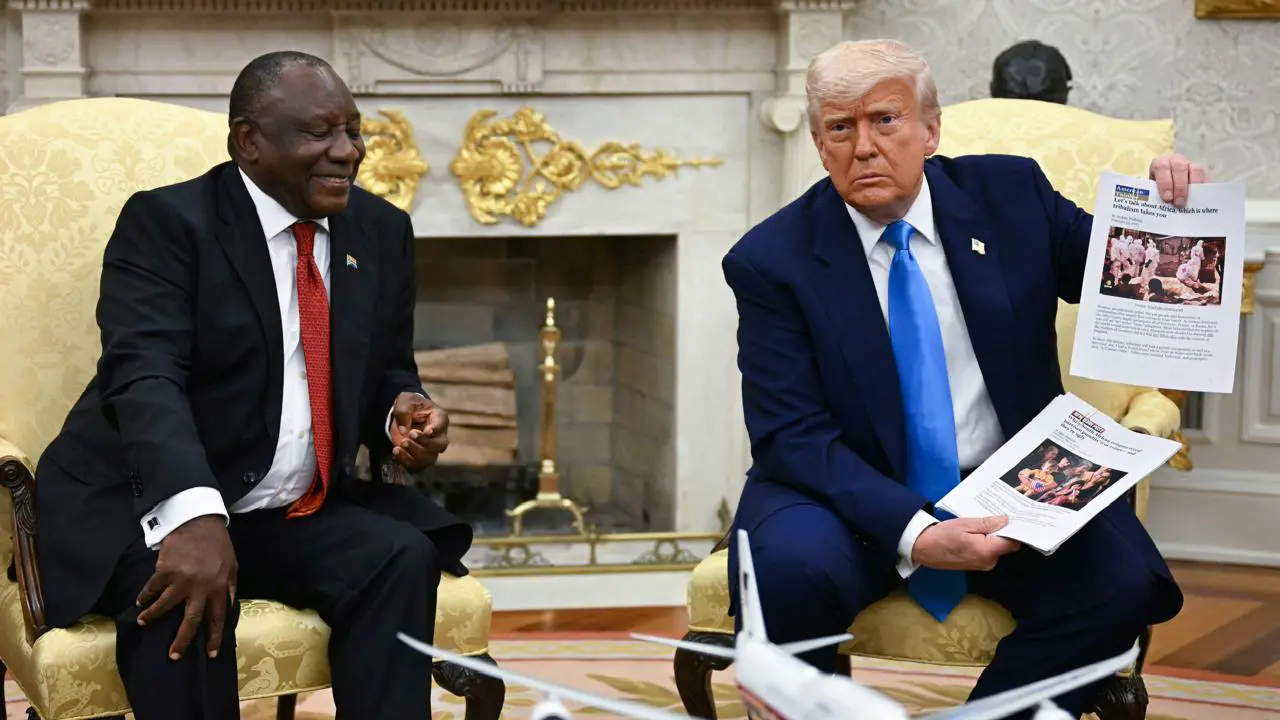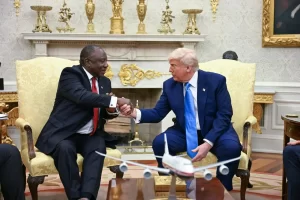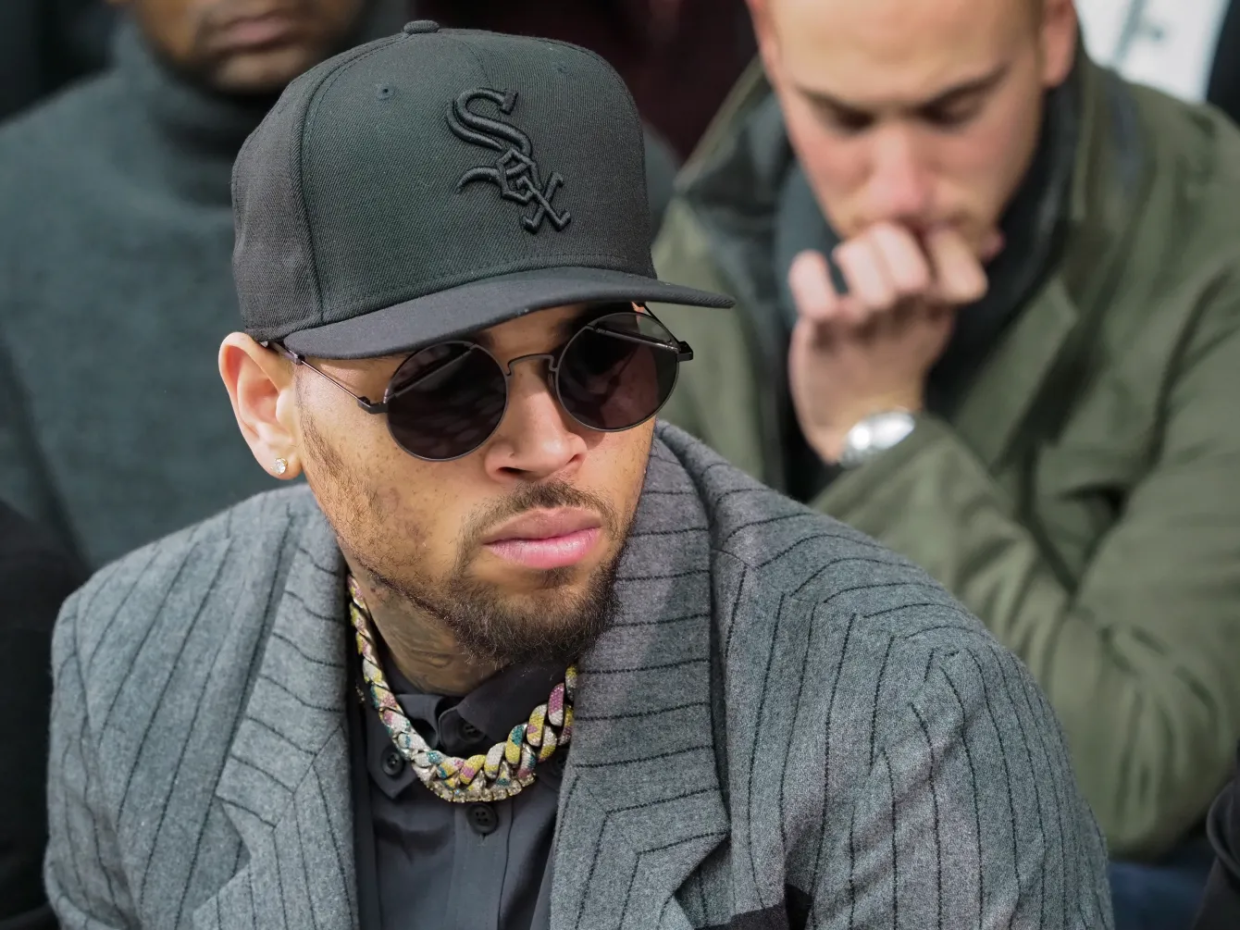Diplomatic Reset Turns Confrontational in Oval Office Discussion
What began as South African President Cyril Ramaphosa’s attempt to reset U.S. relations quickly transformed into a tense diplomatic standoff during Wednesday’s high-profile White House meeting. President Trump confronted his South African counterpart with explosive claims about the treatment of white farmers in South Africa, dramatically altering the meeting’s intended tone.
The Trump-Ramaphosa meeting in Washington highlighted growing tensions between the two nations, with the U.S. president making repeated claims about alleged persecution of white South Africans.
“We have many people that feel they’re being persecuted, and they’re coming to the United States,” Trump stated firmly. “They’re white farmers, and they’re fleeing South Africa, and it’s a very sad thing to see.”
In an unexpected move, Trump had an aide dim the Oval Office lights to display video footage purportedly showing opposition leaders advocating violence against white farmers and what he described as “burial sites of over 1000 white farmers.”
Conflicting Narratives Emerge
Ramaphosa appeared genuinely surprised by the footage, asking where it was filmed and firmly countering Trump’s narrative.
“What you saw—one, that is not government policy. We have a multiparty democracy that allows people to express themselves,” Ramaphosa explained, attempting to redirect the conversation. “We were taught by Nelson Mandela that whenever there are problems, people need to sit down around the table and talk.”
The South African president, who helped negotiate the end of apartheid in the 1990s, emphasized his desire to discuss trade and investment matters rather than unsubstantiated claims.
Trump acknowledged that apartheid was “terrible” but characterized the current situation as “the opposite of apartheid,” suggesting white South Africans now face systematic threats.
Policy Impacts and Immigration Program
Since returning to office in January, Trump has implemented several significant policy changes regarding South Africa:
- Cut off foreign aid to the nation
- Alleged genocide against white South African farmers
- Created a refugee program specifically for Afrikaners
- Established fast-track citizenship for these immigrants
The first group of several dozen Afrikaners reportedly arrived for U.S. resettlement this month under this new program.
Notable Attendees and Lighter Moments
Despite the tensions, the meeting included some unexpected participants and brief moments of levity:
- South African golf legends Ernie Els and Retief Goosen attended at Trump’s request
- South Africa-born billionaire and Trump ally Elon Musk was present
- A brief exchange about South African golfers provided momentary relief from tensions
“What a group of golfers the South Africans have. There must be something in the water, right?” Trump remarked.
“Yes, it is the water, sir,” Ramaphosa responded.
Broader Diplomatic Context
The farmer controversy represents just one dimension of deteriorating U.S.-South Africa relations:
- Israel Position: South Africa accused Israel of genocide at the International Court of Justice in December 2023, which Trump cited as reason for aid cuts
- Diplomatic Expulsion: The U.S. expelled South Africa’s ambassador in March as “persona non grata” for being “anti-Trump”
- Official Boycotts: Secretary of State Marco Rubio skipped a G-20 foreign ministers meeting in South Africa
- Economic Penalties: Trump imposed 30% reciprocal tariffs on South Africa in April (currently paused for 90 days)
Statistical Reality vs. Political Claims
Before the meeting, Ramaphosa expressed hope to dispel what he termed “misinformation” about conditions in South Africa. While South Africa does experience high crime rates, statistics indicate Black South Africans are murdered at higher rates than whites in what remains one of the world’s most violent countries.
Key Takeaways
- The Trump-Ramaphosa meeting focused heavily on alleged threats to white South African farmers
- Trump has implemented refugee and citizenship programs specifically for Afrikaners
- Multiple diplomatic tensions exist beyond the farmer controversy
- Statistical evidence contradicts some claims about targeted violence against whites
- Economic and diplomatic penalties have already been implemented against South Africa
FAQs About U.S.-South Africa Relations
Q: What evidence did Trump present about white farmer persecution?
A: Trump showed unverified video footage claiming to depict burial sites and opposition leaders advocating violence.
Q: How has South Africa responded to these allegations?
A: President Ramaphosa denied these represent government policy and emphasized South Africa’s multiparty democracy allows varied expressions.
Q: What concrete actions has the U.S. taken regarding South Africa?
A: The U.S. has cut foreign aid, expelled an ambassador, implemented tariffs, and created special immigration pathways for Afrikaners.
Q: Who else attended this diplomatic meeting?
A: Notable attendees included Elon Musk and South African golf legends Ernie Els and Retief Goosen.
The future of U.S.-South Africa relations remains uncertain as fundamental disagreements about domestic South African conditions and international positions continue to divide the two nations.






